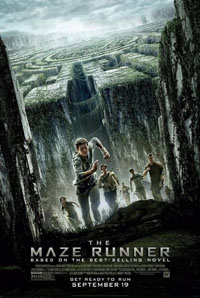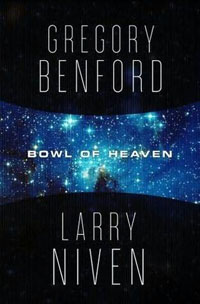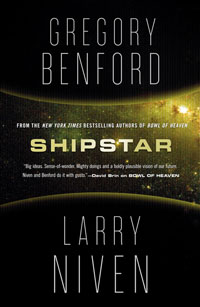So, the emperor is basically naked.
It took me two seasons of on-again, off-again viewing to figure it out, and it pains me greatly to say it because he’s been such a fun emperor in times past (and times future!) but, oh my, that’s pretty naked.
Further stretching the metaphor, his outfits have ranged from simple-yet-serviceable to extravagant-and-exhilarating, I have adored many of them, and envied not a few! Lately, however they seem to run somewhere between threadbare and last-year’s-fashion. Very recently I began to worry that the Emperor’s Clothier might have a supply-side problem.
Nope. Or rather, yes, the clothier has a problem. He’s not supplying any clothing at all. The Emperor is, in point of fact, stark naked. And in case you haven’t closed the loop already, what I’m saying is that the season 8 premiere episode of Doctor Who, “Draw Breath,” starring the brilliant and versatile Peter Capaldi as the latest incarnation of the nigh-immortal, eponymous time lord, was awful.
I don’t mean to imply that those who loved it are somehow blind to the emperor’s nakedness, but let’s crank up the A/C a bit and see whether this supposedly well-appointed fellow shivers, and okay, maybe I AM implying something.
Also, I’m declaring this metaphor broken. I don’t have an A/C knob to turn up, and I don’t know what Doctor Who would look like with the metaphorical shivers.
I can, however, list some of my complaints:
SPOILER ALERT
(and with that out of the way…)
The conceit of “Deep Breath,” (Season 8 Episode 1) was that the Doctor experiences emotional distress when he regenerates, because all of his friends can no longer see him, the real him, through the new skin. This is a GREAT IDEA. And then it got told in the most ham-handed way possible, so that this truly touching bit of human truth gets lost as it knocks about in re-hashed robots, other people’s trademarks, and the requisite eye-candy dinosaur.
In short, the episode squandered a brilliant character insight that can ONLY be executed on when a new Doctor arrives.
I knew I was in trouble when the Doctor was ranting about the bedroom, and I thought to myself “sleeping in a bed would be more enjoyable than this.” Sure, I was tired, but I’ve stayed up late watching recorded programming on many a night. That, by the way, was about the time that Sandra stopped sitting up straight, and opted to lie down on the rest of the couch. Wise woman.
There was clever dialog scattered here and there throughout the episode, but it felt like shiny bits of pretty wrapping paper taped haphazardly to an anvil–the anvil being the cluttered, confused plot and its numerous call-backs to episodes I have enjoyed. Being reminded of a fun thing is not the same as delivering a new fun thing.
Back to the new metaphor: with enough of the shiny bits you can convince folks to admire the wrapping, but when this bundle gets launched from the satellite on its way to my TV screen it is supposed to glide in, not lithobrake into the Yucatan and kill off the dinosaurs.
(It was a big anvil. Made of old stuff. And there WAS a dinosaur. And another metaphor snaps from over-extension.)
The dinosaur! It featured prominently in the adverts and teasers, but it was too big to be believable. Sure, it HAD to be too big because Moffat needed it to cough up a Tardis, but if you’re going to blow the CG budget on something that shiny, you should at least use it to good effect. The dinosaur coughs up the Tardis, bemoans its lonely fate (as translated by The Doctor, who speaks the language of grossly oversized tyrannosaurs), and then burns to death. End of dino.
Another squandered opportunity. The dinosaur could have been used to point up the “see beneath the skin” conceit, but only if it did more for the plot than deliver the Tardis and then turn into a greasy, burned clue.
On to the trio of Madame Vastra, Jenny Flint, and Strax (aka lizard lady, the maidservant, and the Sontaran): I like these characters. Strax delivered some of the best comic relief in the episode, even if doing so did ding his character a bit. Using the relationship between Vastra and Jenny to discuss non-traditional familial relationships was clever, but felt really forced. Maybe that’s the sort of thing that they’ll do better in future episodes, but I don’t think I have any future episodes in me.
Why not?
One word: Daleks.
The teaser for the next episode showed Daleks. Honestly, I don’t care about Daleks. I understand that it might be too expensive for them to just discard a bunch of props because the writers have moved on to new things, but every time they come back to Daleks I feel like I’m supposed to be surprised and terrified and thrilled, but all I really am is bored. Very bored. And disappointed.
So I’m done. At least until someone who is NOT a hard-core fan comes to me and says “hey, you know what? This one episode from the middle of Season 8 is huge fun. Capaldi chews scenery like an Eeetabrox, and oh, the Eeetabrox are these really cool, brand new aliens….” and then I’ll tune the person out while making a note to myself of the episode number.
 It’s near-future science fiction in which a plague has created a whole new class of people whose minds are in fine shape, but who have no ability to move their bodies. They’re “locked in,” and as the prologue (okay, THREE rules) tells us, the fact that some very high-profile people get locked in results in hundreds of billions of dollars in emergency research, several breakthroughs, and a cool system whereby these folks can function like normal people — they teleoperate robot chassis, and yes, this causes some societal upheaval.
It’s near-future science fiction in which a plague has created a whole new class of people whose minds are in fine shape, but who have no ability to move their bodies. They’re “locked in,” and as the prologue (okay, THREE rules) tells us, the fact that some very high-profile people get locked in results in hundreds of billions of dollars in emergency research, several breakthroughs, and a cool system whereby these folks can function like normal people — they teleoperate robot chassis, and yes, this causes some societal upheaval.

